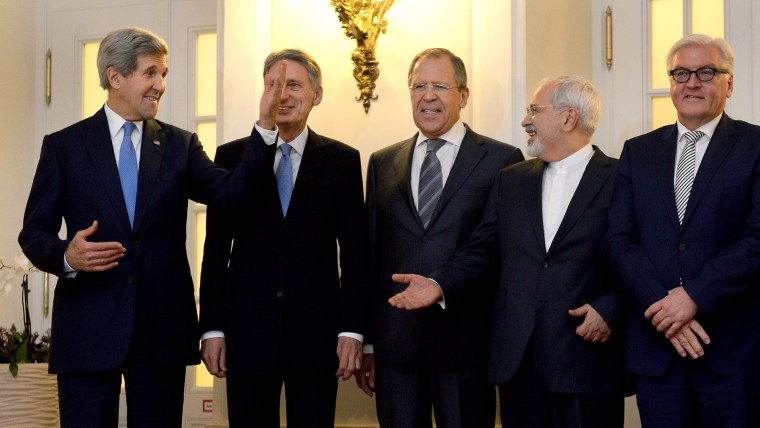International nuclear talks with Iran were facing a deadline yesterday, but the nice thing about self-imposed deadlines is that they can be as flexible as the participants want them to be.
With this in mind, the P5+1 process continued today, with a State Department spokesperson telling reporters there's been "enough progress" of late to warrant additional diplomatic efforts. Sen. Tom Cotton (R-Ark.), fresh off his failed effort to sabotage the talks and undermine American foreign policy, announced yesterday that he wants the diplomacy to end immediately.
The posturing was predictable -- congressional Republicans have made clear they do not want a diplomatic solution when a military confrontation remains available. The American mainstream, however, clearly has a very different take.
By a margin of 4-1 or higher, voters in three critical swing states, Florida, Ohio and Pennsylvania, prefer a negotiated settlement to reduce Iran's nuclear program rather than military intervention, according to a Quinnipiac University Swing State Poll released today. Voters also support by margins of more than 2-1 an agreement in which the U.S. and other nations lift some economic sanctions against Iran if Iran restricts its nuclear program, the independent Quinnipiac University Poll finds.
To be sure, this isn't a national poll, but it surveyed respondents in Florida, Ohio, and Pennsylvania -- three large, politically competitive states. A majority of those polled also believed the sabotage letter, organized by Cotton and signed by 47 Senate Republicans, was "not appropriate."
The results are entirely consistent with two recent national polls -- one from the Washington Post/ABC News, another from CNN -- both of which showed broad public support for the international nuclear talks.
I bring this up, of course, because the right continues to believe the public is siding with Republicans against the talks.
As we talked about yesterday, Josh Kraushaar, a National Journal conservative, for example, continues to believe President Obama is dangerously "ignoring public opinion," willing to "bypass public resistance" to P5+1 diplomacy. Also in March, Sen. Ted Cruz (R-Texas) expressed dismay that the White House is "circumventing the will of the American people," while former Gov. Jeb Bush (R) said "public opinion" is not on Obama's side.
All of these assumptions are backwards.
Because the Republican message machine is so effective, it's often easy to internalize GOP talking points. As the P5+1 process continues, we start to think of it as "controversial" and "divisive," basically because the right says so.
But to date, there are exactly zero independent public-opinion surveys showing public opposition to the diplomatic talks. In fact, Americans may be skeptical about the eventual outcome, but support for the effort is overwhelmingly on the White House's side.
There may come a point in the not-too-distant future in which members of Congress have to decide whether to destroy one of the more important diplomatic breakthroughs in a generation. If so, here's hoping they keep public attitudes in mind.
